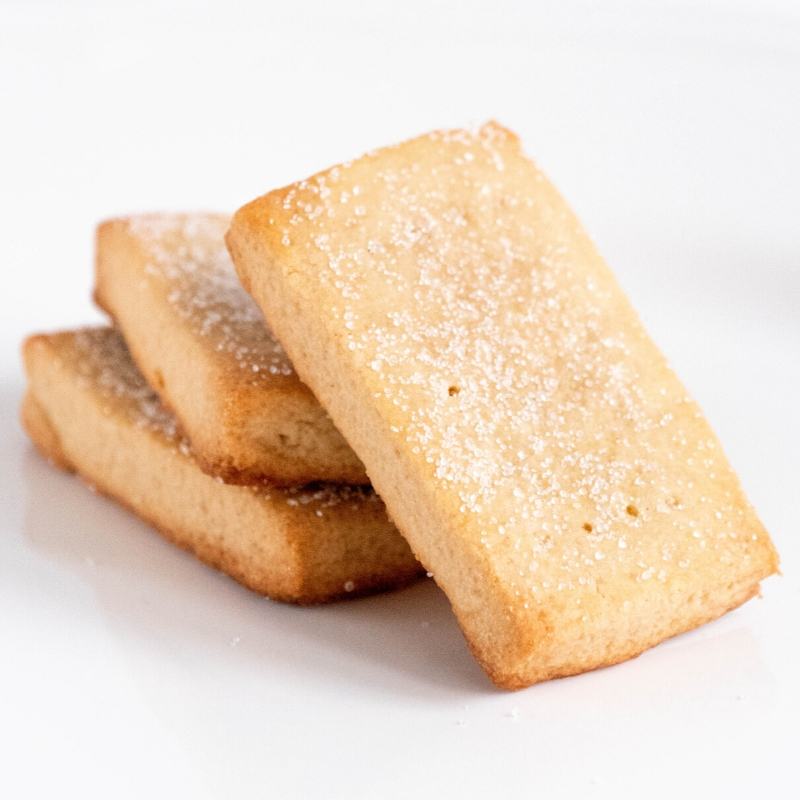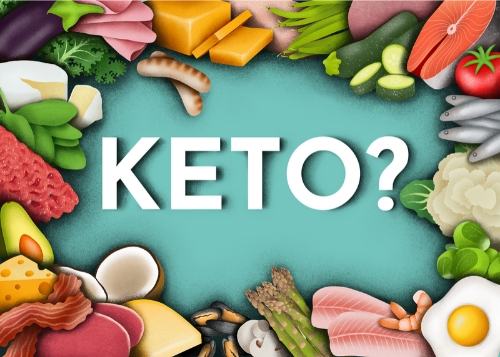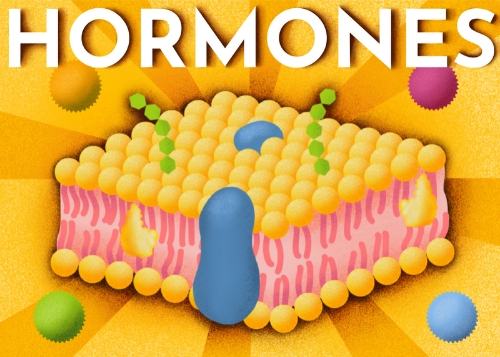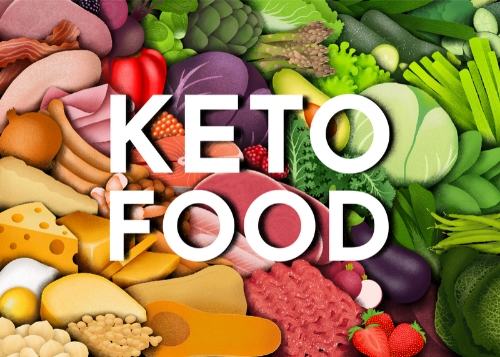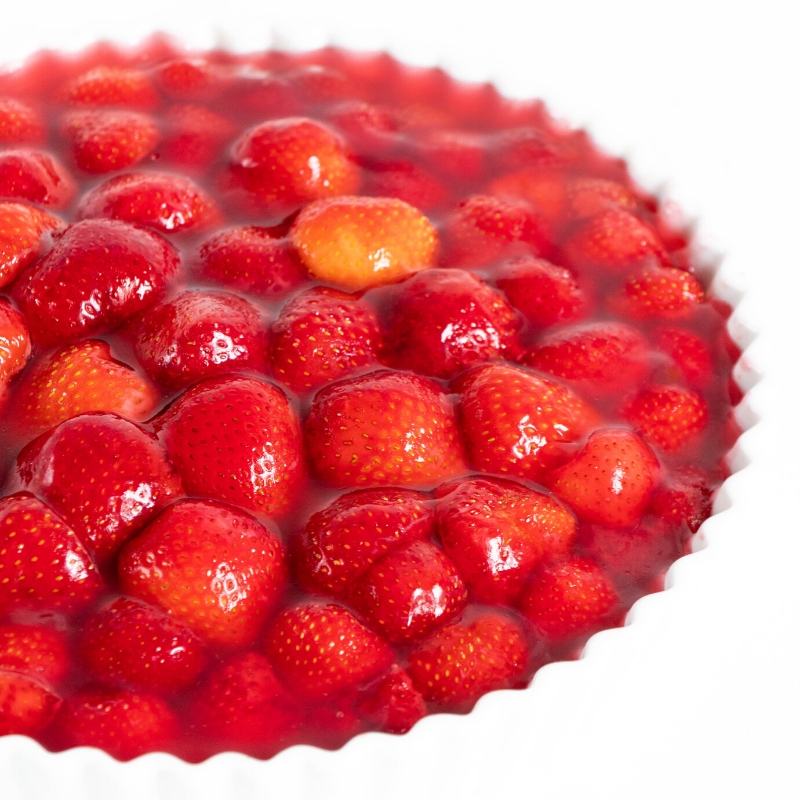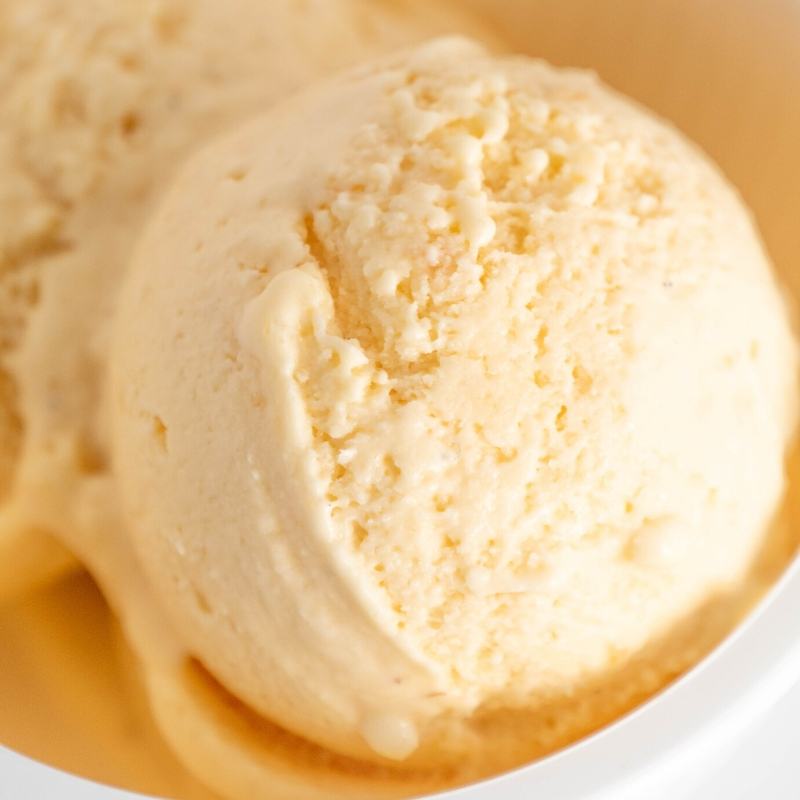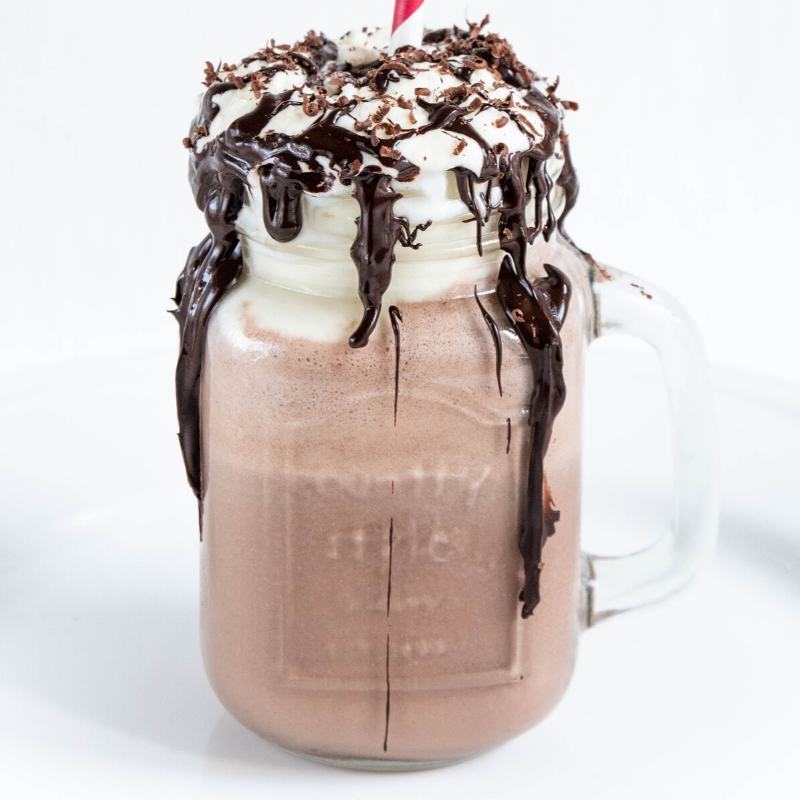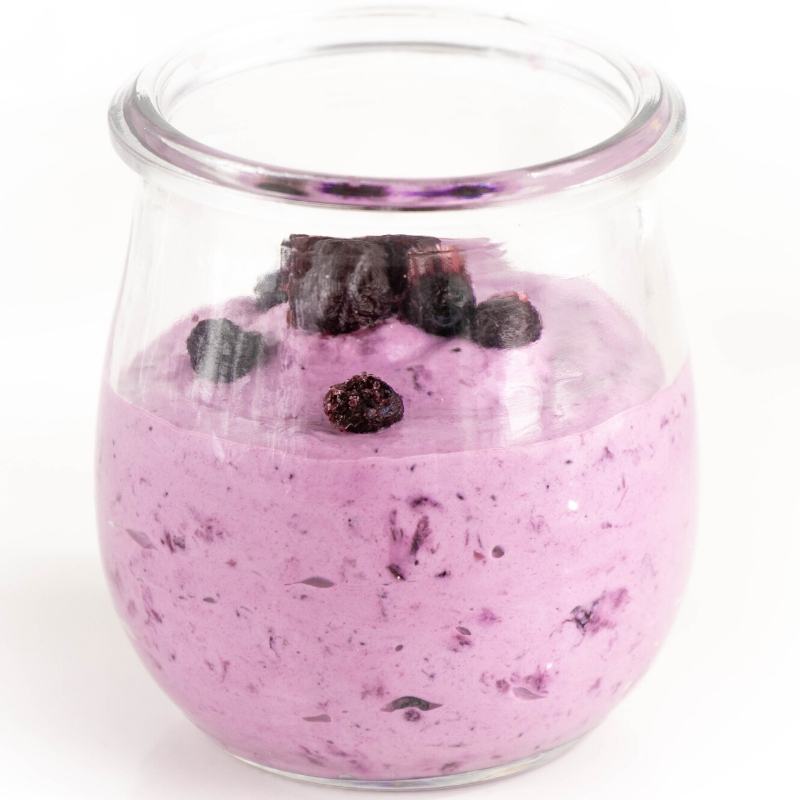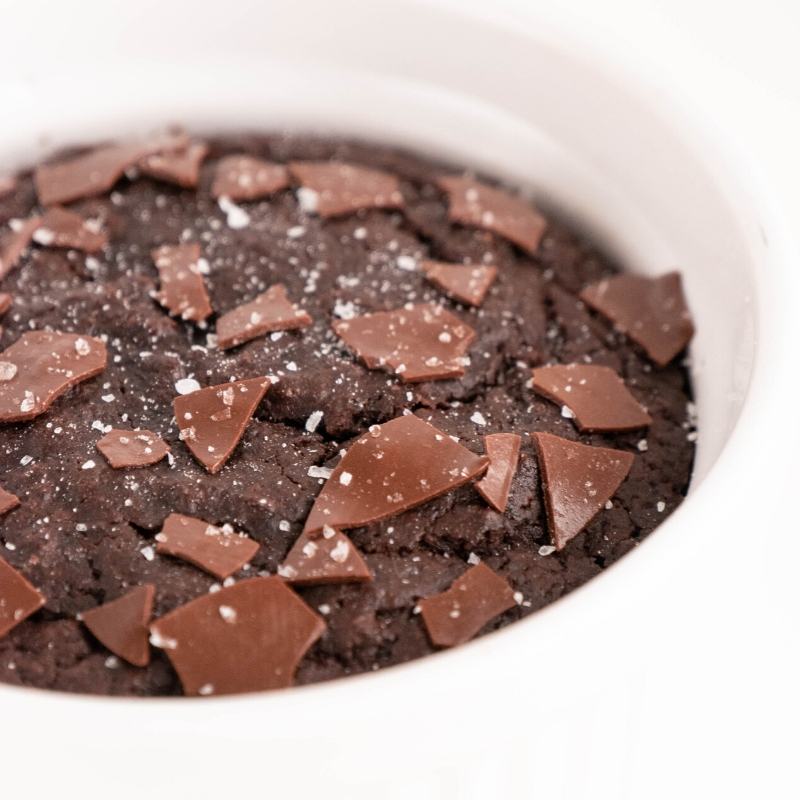Erythritol: Healthy or Dangerous? Everything You Need to Know!
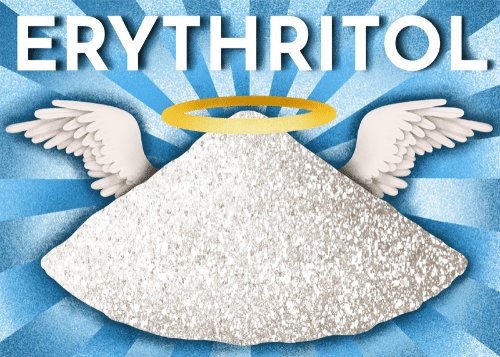
In a nutshell:
- Erythritol is a healthy sugar alternative that only contains about 20 kcal and 0g net carbs per 100g (3.5 oz).
- Erythritol is very well tolerated by humans and there are no known long-term health risks.
- Unlike many other sugar substitutes, erythritol can also be used for baking and has a very similar taste to sugar.
Erythritol sounds too good to be true:
It’s as sweet and “natural” as sugar, but without all the calories, carbs and side effects.
Erythritol is like a long-awaited gift for anyone who wants to eat sugar-free but doesn’t want to sacrifice everything good in life.
Find out in this post whether erythritol has hidden health risks, how you can use it and everything else you need to know about erythritol.
The content provided in this post is for informational purposes only and does not constitute medical advice. It is not intended to replace professional medical advice, diagnosis, or treatment. See further information.
1. What is erythritol?
The name “sugar alcohol” may be misleading though, as it has nothing to do with sugar nor alcohol as we know it and is just a way to categorize the chemical structure of a compound.
Erythritol can also be found in nature, for example in certain types of fruit and vegetables as well as in mushrooms and some fermented foods.
Even the human body itself produces small amounts of erythritol.
While erythritol also occurs naturally, the store-bought-version is usually produced by fermenting glucose using certain types of yeast.
Unlike other sugar alternatives, erythritol has (almost) no calories, zero net carbs and no impact on our blood sugar or insulin levels, making it pretty much perfect for anyone who follows a low carb/keto diet and diabetics.
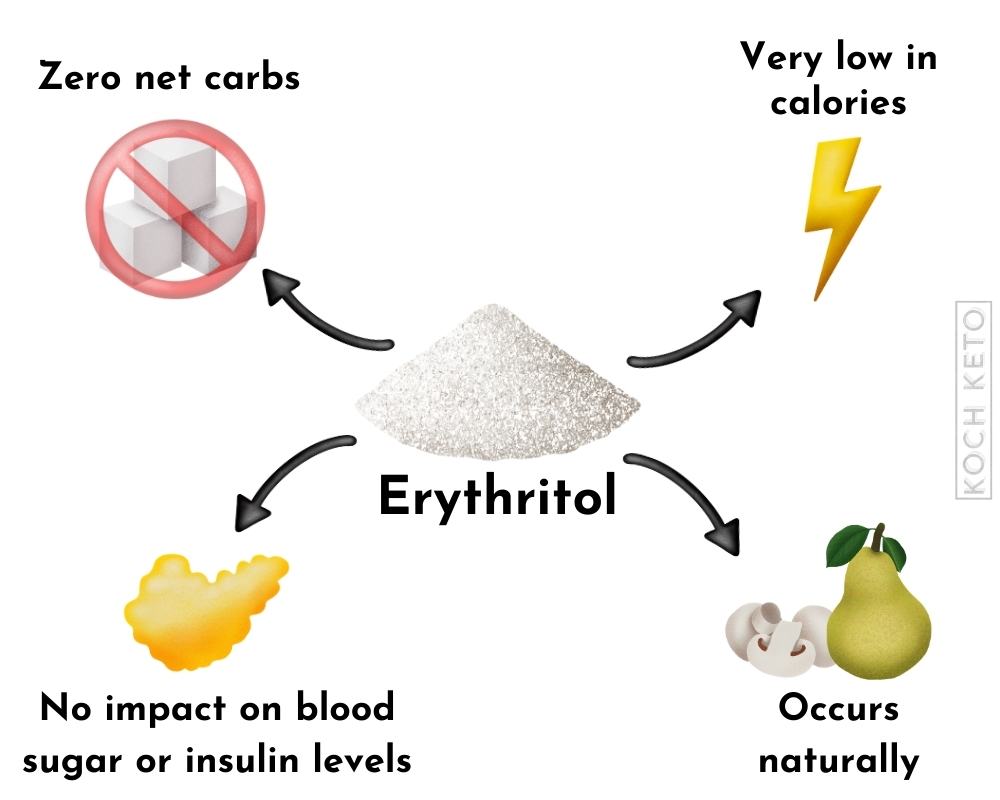
Summary:
- Erythritol is a naturally occurring sugar alternative.
- Erythritol has zero net carbs and only 20kcal per 100g (3.5 oz).
2. Is erythritol dangerous?
All in all, erythritol seems to be a very safe sugar alternative.
Several long-term studies conducted on animals have found no harmful effects of erythritol, even at huge doses.
Studies on humans have also found no ill effects and indicate that erythritol is very safe.
There is also no evidence that erythritol causes cancer.
Unlike xylitol, another popular sugar substitute, erythritol seems to be well tolerated by dogs as well.
Xylitol is highly toxic to dogs and should be kept far away from them.
Erythritol, on the other hand, does not seem to have the same toxic effect on dogs (still, you should play it safe and never give it to any of your pets).
Summary:
- To date, there is no evidence to suggest that erythritol is dangerous to humans.
3. Side effects of erythritol
Compared to most other sugar alcohols, erythritol has minimal side effects.
While most other sugar alcohols can cause unpleasant side effects such as diarrhea even in relatively small amounts, erythritol does not have the same laxative effect.
This is due to the fact that about 90% of the erythritol we ingest simply passes through our system and gets excreted unchanged.
The remaining 10% can cause minor side effects in our gut, like bloating, rumbling noises and nausea.
However, these side effects are usually limited to the ingestion of fairly high doses (approx. 50g/1.75oz at a time), which aren’t typically reached during normal use.
Other studies show that erythritol is well tolerated up to 1g per 1kg body weight (0.5g per lbs) and tolerance usually increases with long-term use as the body gets used to erythritol.
Eating more than 50g/1.75oz of erythritol at once in daily life is certainly not something most of us have to worry about, but if you want to make sure to avoid side effects, just stick to smaller serving sizes up to 30g/1oz.
Summary:
- As long as erythritol is not ingested in very high amounts at once, it is very well tolerated and has virtually no side effects.
4. Health benefits of erythritol
No impact on blood sugar and insulin levels
One of the reasons that makes regular sugar so bad for our health is its enourmous impact on our blood sugar and insulin levels.
If you eat sugar, your blood sugar level will shoot up and your body reacts by releasing insulin, which is supposed to transport the sugar out of your bloodstream and into cells so they can use it for energy.
Unfortunately, our body is pretty bad at dealing with large blood sugar spikes and tends to be too generous with the insulin, which in turn leads to a sharp drop in blood sugar levels.
This large drop in blood sugar levels might cause hypoglycemia, a very low amount of sugar in your blood, which in turn can cause massive cravings and a cycle of never-ending hunger.
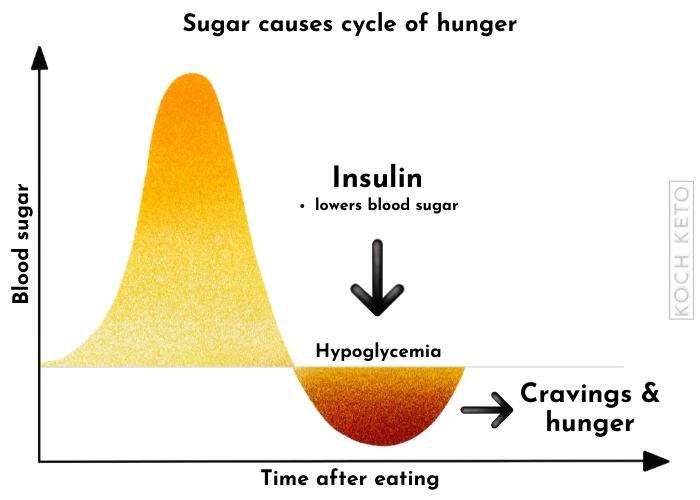
Other sugar alcohols like xylitol also trigger small increases in insulin levels and are better than sugar in this regard, but still not as good as erythritol.
Erythritol has no impact on our blood sugar or insulin levels, making it ideal for anyone who needs to control their blood sugar and insulin levels (diabetics) and those who want to (people following a low carb or keto diet).
Erythritol is beneficial for your dental health
If used regularly, for example in the form of gum, it can protect against caries.
But erythritol might be even better for your dental health.
Studies that have compared erythritol, xylitol, and other sugar alcohols in regards to their effect on caries prevention have found erythritol to be the most effective.
Erythritol increases salivation and inhibits the growth of harmful bacteria and can thereby help to reduce plaque formation on your teeth.
Erythritol acts as an antioxidant and may protect against heart disease
Erythritol acts as an antioxidant , meaning it can counter the negative effect of so-called “free radicals”.
Free radicals are highly reactive molecules that can cause damage in our cells. Other well-known antioxidants are vitamin C and vitamin E.
There is also evidence that erythritol might protect against the harmful effects of a high blood sugar level.
A high blood sugar level is an important factor when it comes to the development of heart disease.
Erythritol appears to counteract the damage caused by a high blood sugar level.
Summary:
- Erythritol has several potential health benefits:
It can protect against tooth decay, it acts as an antioxidant and it has no impact on our blood sugar or insulin levels.
5. Keto dessert recipes with erythritol
These sugar-free dessert recipes made with erythritol are perfect for you.
All of our sweet recipes are low carb and keto-friendly as well!
6. Erythritol: What to buy
But it doesn’t have to be so complicated – a few basics are all you need to get started on your new lifestyle.
Granulated erythritol
- Tastes (almost) like sugar
- Can replace sugar in most recipes
- No impact on blood sugar or insulin levels
- Very safe
- Good for your teeth + other potential health benefits
- Has a slight “cooling” effect in your mouth
- Only 70% as sweet as sugar
Powdered erythritol
- Same benefits as granulated erythritol
- Unlike granulated erythritol, also suitable for sweetening cold drinks
- Same drawbacks as granulated erythritol
Brown erythritol
- Same benefits as granulated erythritol
- Has a pleasant malty taste that goes well with caramel, nuts, cinnamon and much more
- Same drawbacks as granulated erythritol
FAQ’s
What is erythritol?
Is erythritol healthy?
For example, it may protect against tooth decay and it acts as an antioxidant.
Does erythritol have side effects?
When used in large amounts, some digestive issues like rumbling noises and nausea may occur.
Is erythritol natural?
At retail level, however, erythritol is produced by fermenting glucose with certain types of yeast.
Does erythritol have a laxative effect?
However, the most common side effects are rumbling noises and nausea and not necessarily a laxative effect.
How do I use erythritol?
Even baking is possible with erythritol.
You have to keep in mind though, that erythritol is only 70% as sweet as sugar and you might have to adjust the amount used if you want to follow a recipe made with sugar.




